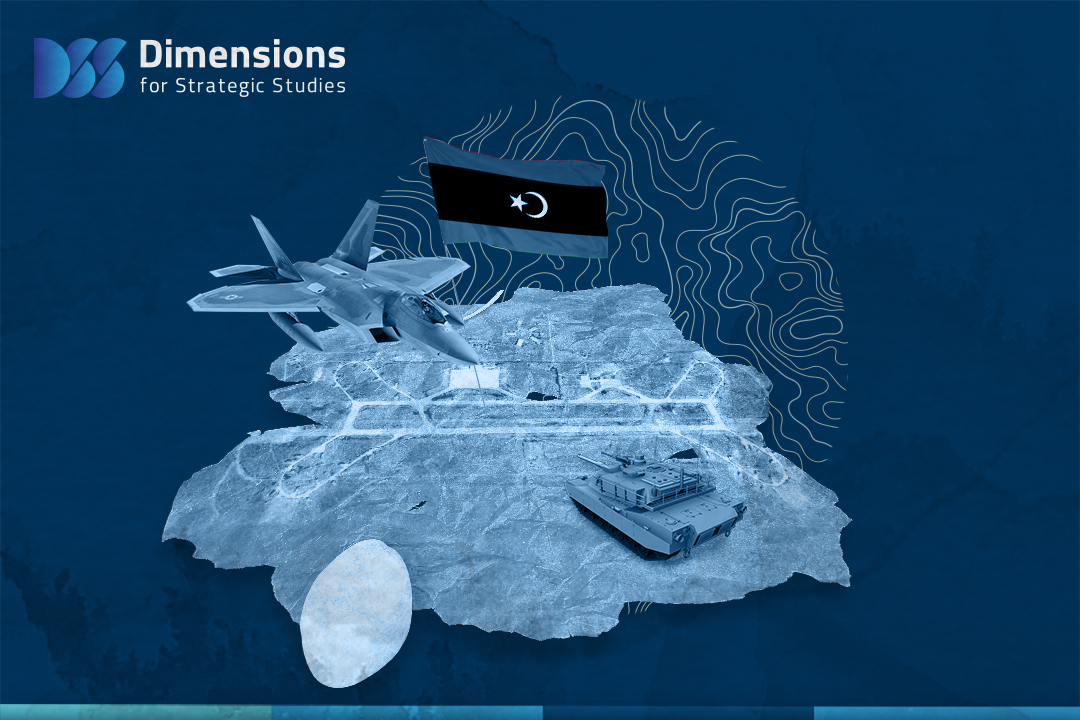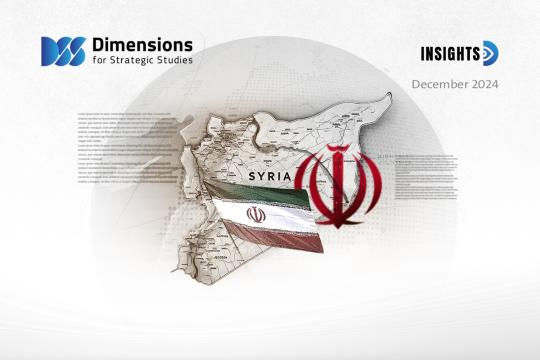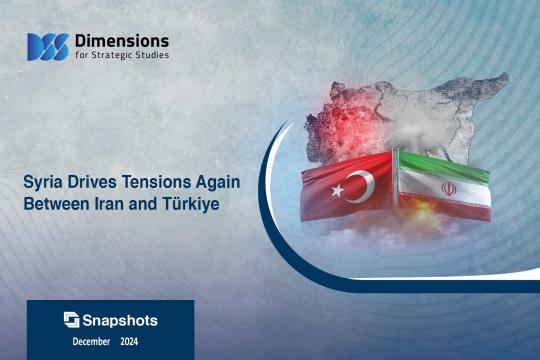
Lybia: GNA’s Control of Al- Watiya Airase
2020-05-203251 view
Introduction
On May18, the Libyan Government of National Accord (GNA) managed to capture the Al- Watiya airbase in western Libya, after two attempts to enter the base during the past few months and imposing an almost complete siege on it since the end of April.
It can be said that to win such a battle is a key turning point in the ongoing confrontations between the GNA and the forces of the Libyan Major General "Khalifa Haftar" at the various political and military, internal and international levels.
First: The strategic importance of the Al- Watiya base
Al-Watiya Air Base, 140km (90 miles) southwest of the capital Tripol, is considered the largest base in Libya in terms of area.
As well, it includes a runway and hangars for warplanes, in addition to weapons and fuel depots, a residential city and infrastructure that could accommodate nearly 7,000 soldiers.
Controlling the base helps ensure air superiority on the western coast of Libya and the capital, Tripoli. In addition, within the vicinity of the Al-Watiya base there is the largest military immunization systems in all Libyan bases.
In terms of the strategic importance of the geographical location, Al-Watiya comes in second place after the "Al-Jufra" base, which is in the middle of the country and provides aviation with the ability to fly in various directions.
Second: the factors that helped control Al-Watiya
The military operations of the GNA and its allied forces have gained great momentum since February of this year, due to the escalation of Turkish military support for it. The most prominent aspects of this support that affected the control of the Al-Watiya base can be summarized as follows:
1) Participation of Syrian fighters
Fighters affiliated with the Syrian National Army had participated extensively in the battles that targeted Al-Watiya base on the side of the Government of National Accord, as the number of Syrian fighters who arrived in Libya reached nearly 6,000 ones.
2) Air defense systems
The air defense systems brought in by the Turkish army contributed to neutralizing the drones of the Emirati army stationed at the Al-Jufra and Al-Watiya bases.
2) Turkey's armed drones
The Turkish drones are among the decisive factors that facilitated the process of seizing control over the Al-Watiya base, as the Turkish drones focused on bombing weapons and fuel depots inside the base formore than two weeks before being stormed by ground forces, in addition to destroying columns, military reinforcements and fuel supplies entering the base.
In addition, the period between the sixteenth and eighteenth of May witnessed the destruction of three Russian-made “Pantisir 1” air defense systems that the UAE army had brought into Libya.
Third: The repercussions of the Al-Wefaq government’s control of the Al-Watiya base on the actors
Taking control of the Al-Watiya base is a military and political loss for Haftar's forces and, on the contrary, it is a big win for the Government of National Accord.
1) Securing the capital city
The neutralization of Haftar's forces, its warplanes, and Emirati drones from the "Al-Watiya" is an important factor in thwarting the campaign launched by Haftar on Tripoli since April 2019, in addition to ensuring more stability on the western Libyan coast.
2) Freeing a large military bloc
In addition to securing the capital, Tripoli, the military gain achieved by the GNA in controlling “Al-Watiya” is the liberating of a large military bloc affiliated with the Western Military District led by Major General “Osama Juwaili”. In fact, they were stationing in the outskirts of the base and in the regions of the far west. Thus, such a significant military bloc could participate in any future military operations along with the GNA's forces, especially in the axes south of Tripoli.
2) Freeing a large military bloc
In addition to securing the capital, Tripoli, the military gain achieved by the GNA in controlling “Al-Watiya” is the liberating of a large military bloc affiliated with the Western Military District led by Major General “Osama Juwaili”. In fact, they were stationing in the outskirts of the base and in the regions of the far west. Thus, such a significant military bloc could participate in any future military operations along with the GNA's forces, especially in the axes south of Tripoli.
3) The negative political impact on Haftar
It is likely that the loss of the “Al-Watiya” base will negatively affect Major General “Khalifa Haftar”, by increasing mistrust among the countries supporting him about his ability to resolve the conflict militarily. Consequently, the decline in support provided to him, and the search for new options such as trying to push towards reaching a new political understanding or agreement between parties representing the Libyan East with the GNA, such as the Tobruk Parliament, whose relationship with Haftar is not in its best phase.
4) Breaking new ground for strengthening the relations of reconciliation with neighboring countries
The entry of the GNA to the Al-Watiya base, and before it to the western coast and the border strip with Tunisia, might break new ground for strengthening its alliances with the Arab neighboring countries (Algeria - Tunisia); because the governments of these two countries sought to take a semi-neutral position between the two parties throughout the past periods. Such a position, of course, had been taken in anticipation of Haftar’s victory from on the one hand and to care balance in the relationship with the allies of both parties. However, GNA’s progress in Al-Watiya, and its ability to maintain this victory later, will enhance the capabilities of these two countries to further strengthen relations with the GNA.
Fourth: The upcoming operations' destination of the Government of National Accord
Most likely, the next destination for the operations of the GNA and its allied forces will be the axes south of the capital, Tripoli, in which Haftar’s forces are stationed on the outskirts of the capital, specifically: Ain Zara, Wadi al-Rabi’, Salah al-Din, the international airport, and Emsihel, in order to ensure complete security of Tripoli’s neighborhoods.
The Al-Washika area, southeast of the city of Misrata, is also considered one of the key areas, as controlling it helps secure Misrata and opens the way for progress towards the city of Sirte.
It might be expected that the Government of National Accord and its allied forces would focus their military effort on the center of the country towards "Sabha" with the aim of reopening the El Sharara and El Feel oil fields, which are closed by tribes loyal to "Haftar", especially since the Government of National Accord has military allied group in the city of "Sabha".





